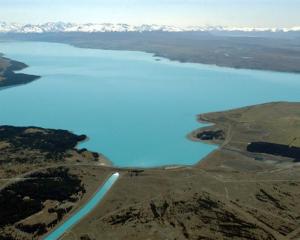The New Zealand dollar dropped nearly 1c yesterday as investors deserted riskier currencies in the face of worsening economic data from the world's biggest economies.
Bad news on manufacturing and bank downgrades continued from Europe yesterday, following a week where China hit an eighth consecutive month of manufacturing decline.
In the US, house sales fell, estimates of first-time jobless, at 387,000, were higher than expected, and the Federal Reserve slashed economic growth forecasts.
The euphoria from the outcome of Greece's elections, and closer to home, New Zealand's surprisingly buoyant economic growth at 1.1% this week, has worn off markets and analysts already.
From trading around US79.70c on Thursday, the kiwi fell 0.89c to US78.81c at 5pm yesterday.
The price of gold and oil sank, along with the indexes of most major bourses around the world, including New York, London, Frankfurt, some Asian markets and Australia's ASX; later declining by more than 1% hours after reopening yesterday.
Adding to growing global economic concerns yesterday, the health of 15 of the world's largest financial institutions has been called into serious question, as rating agency Moody's downgraded its credit ratings, citing exposure to Europe's economic woes.
Some of the biggest names in banking, including Goldman Sachs, Barclays, Citigroup, HSBC and Deutsche Bank, had their ratings slashed, which spells out increased scrutiny from markets and potentially higher borrowing costs, AFP reported.
Craigs Investment Partners broker Peter McIntyre said the Moody's downgrade "could become a self-fulfilling prophecy", as those banking houses will now have to pay higher interest on borrowings.
"Moody's downgradings just add more pressure to a situation which is already tenuous," he said yesterday.
Forsyth Barr broker Peter Young said US stocks declined following release of a euro area manufacturing report, reflecting a fifth consecutive month of decline - at the fastest pace seen during the past three years.
In China, a purchasing managers' index was in decline for the eighth month in a row.
"All 10 groups in the S&P500 [index] retreated, ledby declines in commodity,consumer discretionary and technology shares."
Mr Young noted Spain's medium-term borrowing costs spiralled to a euro era record at an auction on Thursday, before an independent audit revealed Spain's banks would need 51 billion to 62 billion ($NZ81 billion to $99 billion) in extra capital to weather a serious economic downturn.
New Zealand economic data this week revealed growth in quarterly gross domestic product was double expectations, at 1.1%.
However, Mr McIntyre said analysts were days later seeing it as a "one off", largely because it would be difficult to replicate several positives from dairying which boosted agriculture's 2.3% contribution.
"Seems the euphoria has run out of Greece's elections ... now the markets have turned on Italy and Spain," he said of their respective, escalating, sovereign crisis.
The US "debt ceiling" problem, with borrowing levels at their maximum, have to be revisited this year, adding more volatility to already shaky markets.
Global oil also reflected the markets' downturn in expectations of economic growth.
West Texas crude dropped 4.1% to $US78.43 ($NZ99.60), North Sea Brent crude fell $US3.46 from Wednesday's close to $US89.23 a barrel, its first trip below the $US90 line since December 2010.
Global spot gold pricesretreated 2.4% to $US1568.68.
BNZ head of research Stephen Toplis said oil prices were continuing to soften the ongoing concerns surrounding the Euro-zone, Spanish bond yields rising above 7%, and softening US and Chinese economic activity.
"The global crude oil market is loosening as demand weakens and supply disruptions dissipate, but market fundamentals still point to prices well above current levels," he said in a statement yesterday.
Downgraded banks include: Bank of America, Barclays, Citigroup, Credit Suisse, Goldman Sachs, HSBC, JPMorgan Chase, Morgan Stanley, Royal Bank of Scotland, Deutsche Bank, Societe Generale and UBS.












